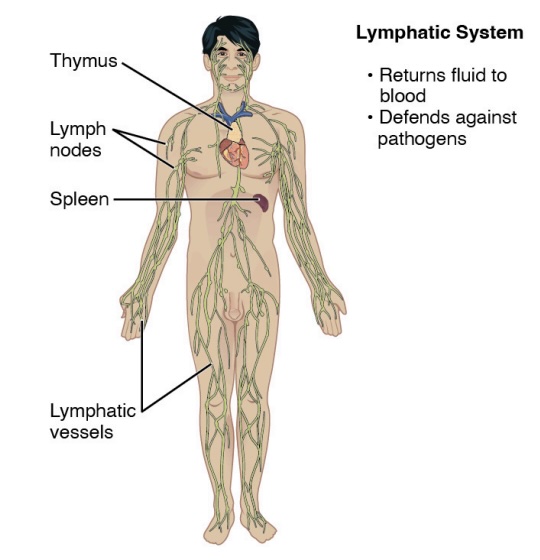Organ Systems
1/10
Earn XP
Description and Tags
The 11 organ systems in the body
Name | Mastery | Learn | Test | Matching | Spaced |
|---|
No study sessions yet.
11 Terms
integumentary system
-largest organ system in the body
-contains:
skin,
nails,
hair
-function:
encloses internal body structures
site of many sensory receptors
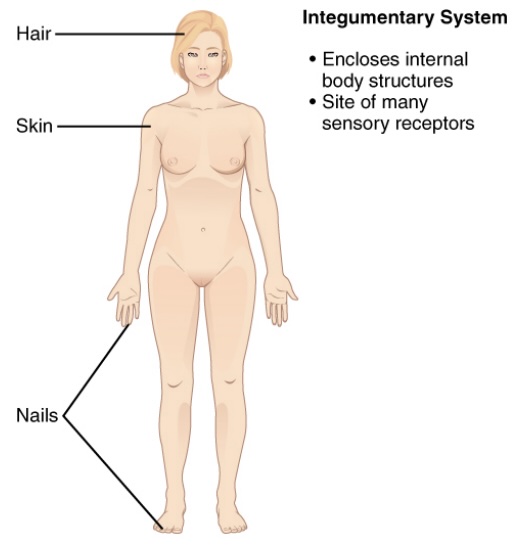
skeletal system
bones
-contains:
bones,
joints,
cartilage
-function:
give support;
enables movement (with muscular system);
storage (calcium - store calcium in bones and calcium gives you muscle contraction)
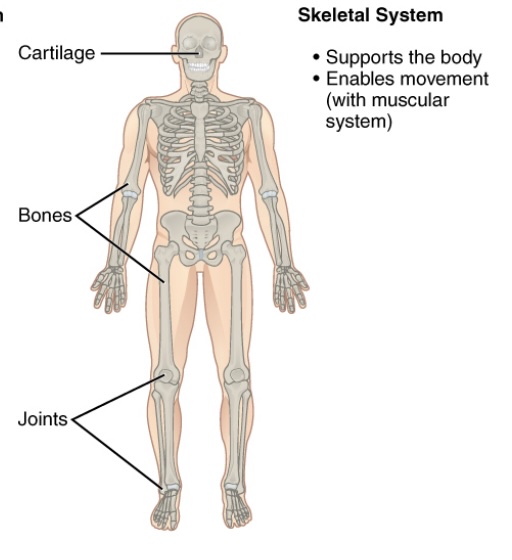
muscular system
muscles
-contains:
skeletal muscles,
tendons
-function:
provides movement (with skeletal system);
helps maintain body temperature
-also have things like cardiac muscle, smooth muscle, etc - these work in different ways but all produce motion
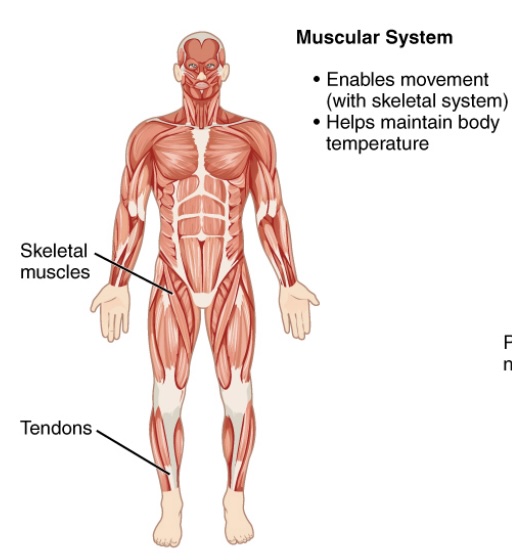
nervous system
-contains:
brain,
spinal cord,
nerves
-function:
detects and processes sensory information;
activates bodily responses - tells other organ what to do - is a regulatory system
-has interactions with all other organ systems
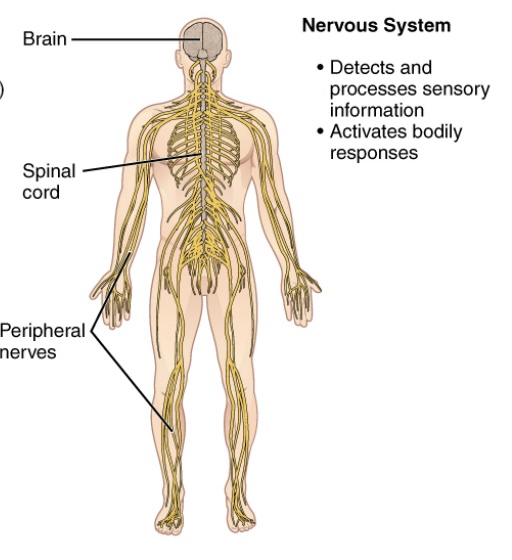
endocrine system
-hormones
-also related to regulation
-contains:
pituitary gland
thyroid gland
pancreas
adrenal glands
gonads (testes/ovaries)
pineal gland
thymus
-function:
secretes hormones
regulates bodily processes
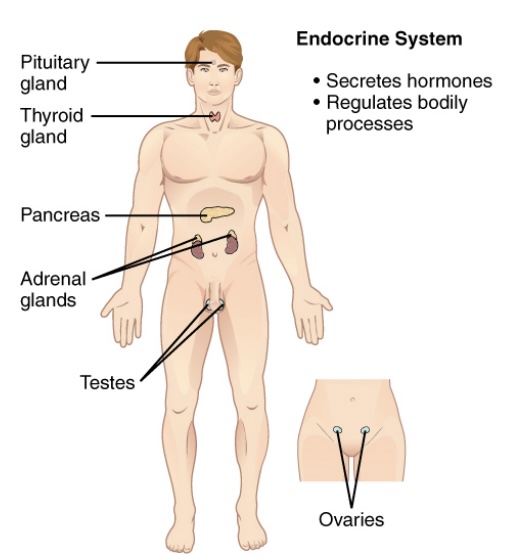
reproductive system (male and female)
female reproductive system:
-contains:
mammary glands
ovaries
uterus
-function:
produces sex hormones and gametes
supports embryo/fetus until birth
produces milk for infant
male reproductive system:
-contains:
epididymis
testes
-function:
produces sex hormones and gametes
delivers gametes to female
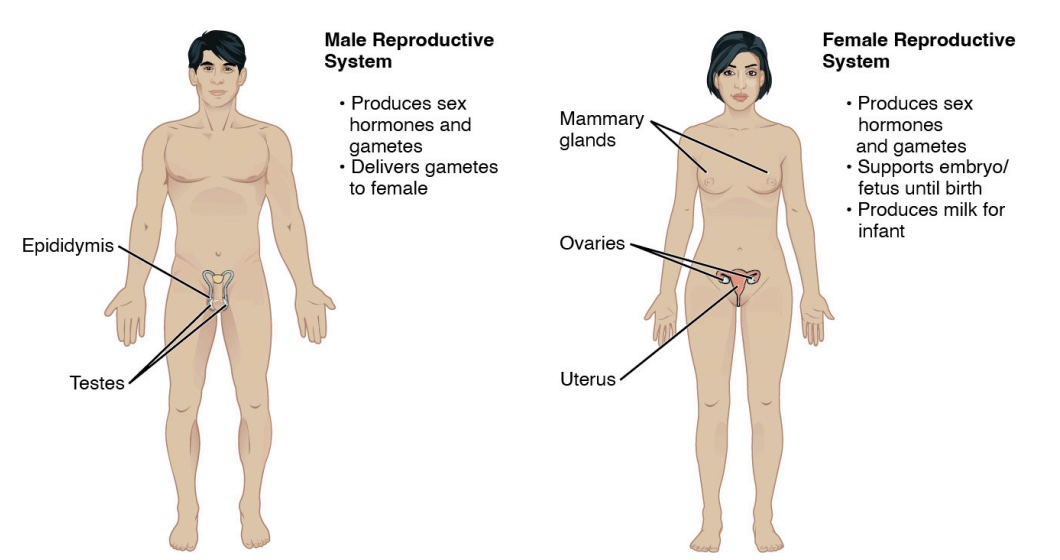
circulatory/cardiovascular system
-contains:
heart
blood vessels
(blood itself)
-function:
delivers oxygen and nutrients to tissues
equalizes temperature in the body
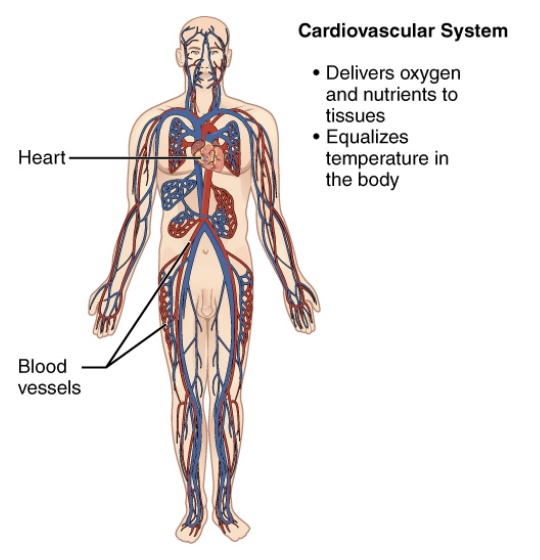
respiratory system
-contains:
lungs
trachea
nasal passage
(pharynx)
(larynx)
-function: gets rid of CO2 from body and brings in O2 into the body
removes CO2 from the body
delivers O2 to blood
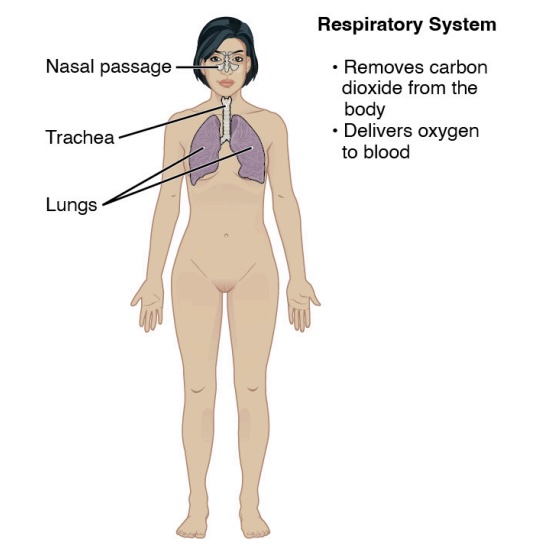
digestive system
-contains:
stomach
liver
gall bladder
large intestine
small intestine
(esophagus) ?
(mouth) ?
-function: obtains energy inside the body; processes food and obtains energy from food and how we get ride of some waste products
processes food for use by the body
removes waste from undigested food
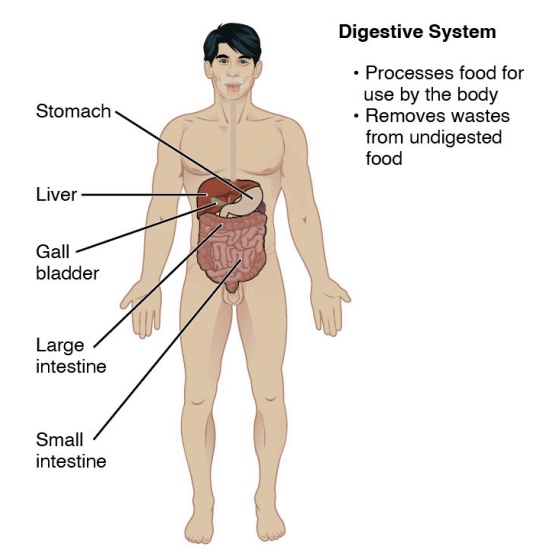
urinary system
-contains:
kidneys
urinary bladder
-function:
controls water balance in the body
removes wastes from blood and excretes them
regulates pH and contents and quality of fluids in our body
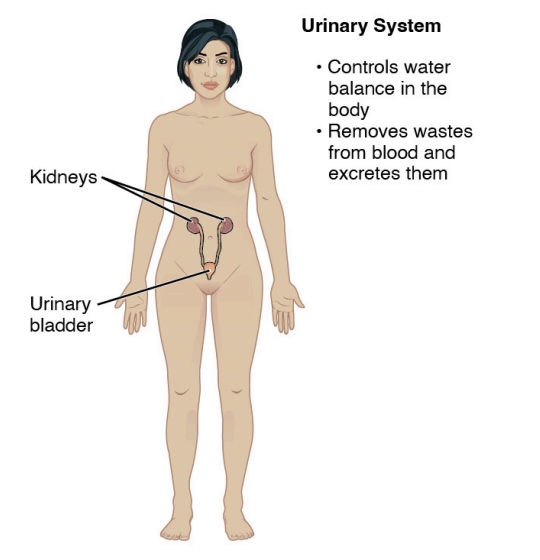
lymphatic system
immune system (technically a circulatory system)
-contains:
thymus
lymph nodes
spleen
lymphatic vessels
-function:
returns fluid to blood
defends against pathogens - deals with how we defend ourselves from aggression from outside and how we defend ourselves from infection
